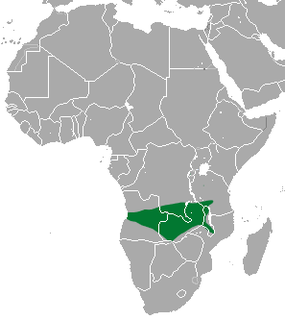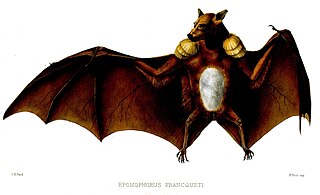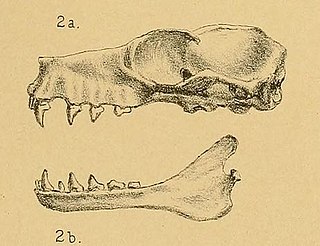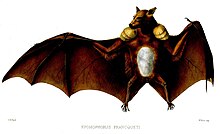
Epomophorus is a genus of bat in the family Pteropodidae. They have a distribution throughout Africa.

The Gambian epauletted fruit bat is a species of megabat in the family Pteropodidae.

Wahlberg's epauletted fruit bat is a species of megabat in the family Pteropodidae. It is commonly found across southern Africa.

Buettikofer's epauletted fruit bat is a species of megabat in the family Pteropodidae. It is found in Ivory Coast, Ghana, Guinea, Guinea-Bissau, Liberia, Nigeria, Senegal, and Sierra Leone. Its natural habitats are subtropical or tropical moist lowland forests, dry savanna, and moist savanna. It is threatened by habitat loss.

Dobson's epauletted fruit bat, or Dobson's fruit bat is a species of megabat in the family Pteropodidae. It is found in Angola, Democratic Republic of the Congo, Malawi, Mozambique, Rwanda, Tanzania, and Zambia. Its natural habitat is dry savanna.

Franquet's epauletted fruit bat is a species of megabat in the family Pteropodidae, and is one of three different species of epauletted bats. Franquet's epauletted fruit bat has a range of habitats, varying from sub-saharan forest to equatorial tropics.

Hayman's dwarf epauletted fruit bat or Hayman's epauletted fruit bat is a species of megabat in the family Pteropodidae. It is found in Angola and Democratic Republic of the Congo. Its natural habitats are subtropical or tropical moist lowland forest and moist savanna. It is threatened by habitat loss.
Micropteropus is a genus of bat in the family Pteropodidae.

The minor epauletted fruit bat is a species of megabat in the family Pteropodidae. It is found in Zambia, Tanzania, Mozambique and Kenya.
Hepatocystis is a genus of parasites transmitted by midges of the genus Culicoides. Hosts include Old World primates, bats, hippopotamus and squirrels. This genus is not found in the New World. The genus was erected by Levaditi and Schoen, 1932, as Hepatocystes.
Hepatocystis brosseti is a species of parasitic protozoa that infect mammals. They are transmitted by flies of the genus Culicoides







